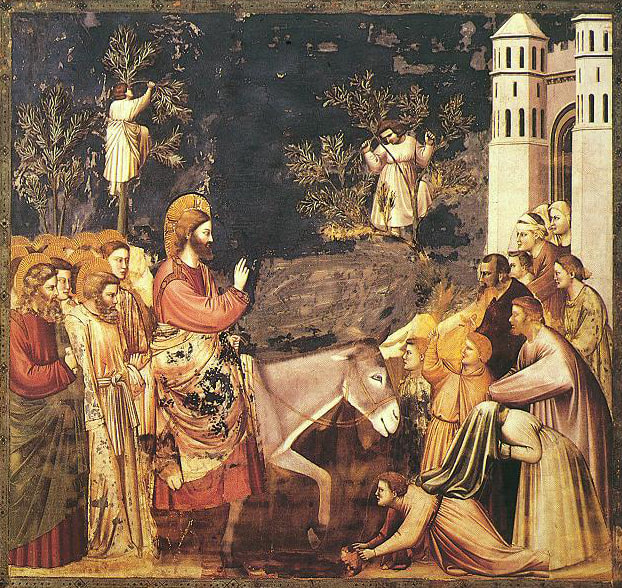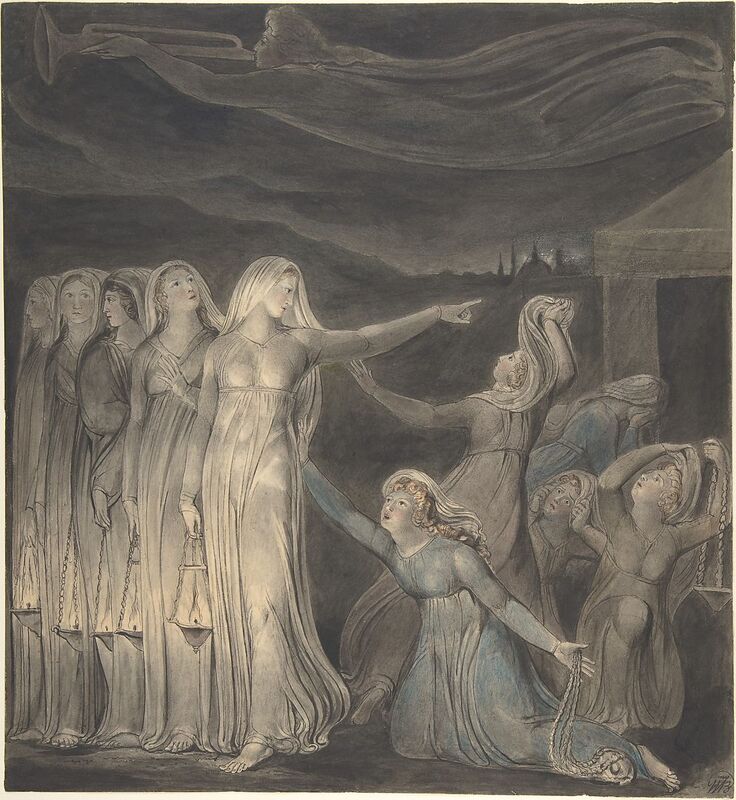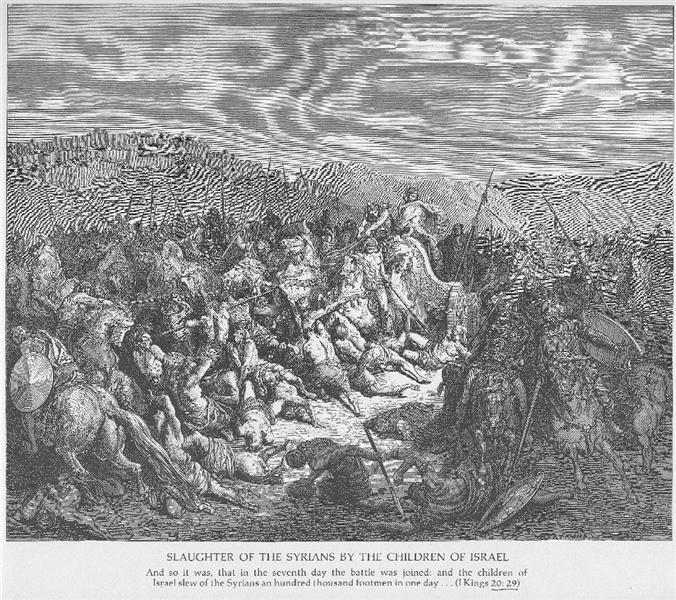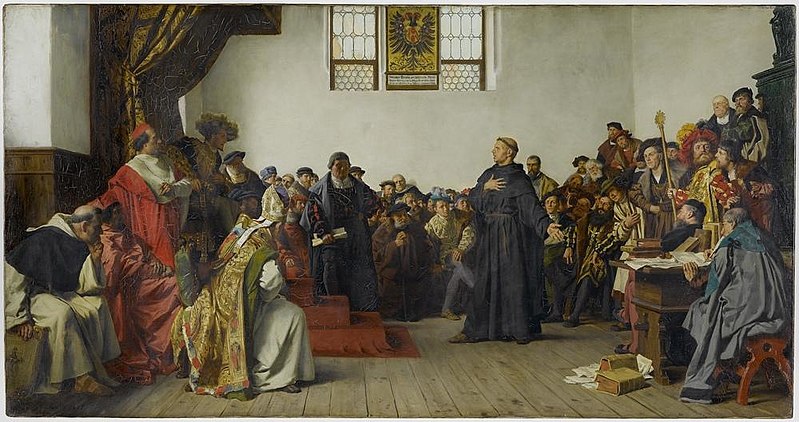Matthew 21:1-9
Pastor James Preus
Trinity Lutheran Church
November 28, 2021
“Hosanna to the Son of David! Blessed is he who comes in the name of the Lord! Hosanna in the Highest!”
These words shouted by the crowds in Jerusalem are a paraphrase from Psalm 118. Psalm 118, along with all the Psalms and the entire Old Testament were inspired by God the Holy Spirit. They are words prepared in heaven for us creatures here on earth. And these words, “Hosanna to the Son of David,” who is on earth, and “Hosanna in the Highest,” sound similar to another familiar hymn of praise, “Glory to God in the highest, and on earth peace, good will toward men.” (Luke 2:14) These words, of course, were proclaimed by the angels to the shepherds at the announcement of Jesus’ birth. In fact, St. Luke even records people in this same crowd welcoming Jesus as he comes into Jerusalem on a donkey saying, “Blessed is the King who comes in the name of the Lord! Peace in heaven and glory in the highest!” (Luke 19:38) So, the crowd not only paraphrases God’s Word from Psalm 118, but they paraphrase the words of the angels at Jesus’ birth! Perhaps, they heard them from the Bethlehemite Shepherds, who were watching their sheep just a few miles away from Jerusalem some thirty-three years earlier. Perhaps the elderly shepherds were even in the crowd!
Regardless, what we have here in Jesus’ triumphal entry into Jerusalem is a crowd of faithful people proclaiming words prepared for them by God in heaven, spoken to a man, who himself has come to them from God’s heavenly throne!
Yet, let’s examine these words. “Hosanna to the Son of David! Hosanna in the Highest!” The word “hosanna” is Hebrew for “save us now.” Son of David is a title given to the Christ, the anointed Savior sent by God, as prophesied by numerous prophets (2 Samuel 7:12-16) including Isaiah (11:1) and Jeremiah (23:5). So, the crowd is crying to Jesus to save them. And they are calling Jesus the Christ, the Son of David. The Son of David is on earth, born to a woman, born under the Law. They can see him riding on a donkey. They are also crying, “Hosanna in the Highest!” “In the Highest” refers to God’s holy throne in heaven. How is it that they are crying, hosanna, both to him who is on earth, riding on a donkey, descended from King David; and they are crying, hosanna, to him who is in the highest, enthroned above, surrounded by cherubim and seraphim? Are they crying hosanna to two different persons? No. They are crying hosanna to the one and only Christ, who has become man, and dwelt with people here on earth, even as he remains in heaven.
These words, “Hosanna to the Son of David” and “Hosanna in the Highest,” teach us about the personal union of Christ. Christ is both God and man, yet he remains one Christ. We Christians confess this. He is God from eternity, begotten of the Father before all worlds. He is man in time and place, born of the Virgin Mary in Bethlehem over two thousand years ago. Yet, it is important for us to understand that when Christ became incarnate, that is, when Christ became a man, he remained God. We might use the phrase, “He left his throne on high,” and many of our hymns will use such language. But such language is only used to emphasize Christ’s humility to save us. Yet, in fact, when Christ Jesus was wrapped in swaddling clothes and laid in a manger by his virgin mother, he remained enthroned in heaven, because he never ceases to rule the universe. The Christmas Hymn, A Great and Mighty Wonder, written by St. Germanus in the seventh century articulates this well, “The Word becomes incarnate And yet remains on high.”
This seems impossible, and for our human minds it is. How can Christ remain one, yet be in more than one place? How can he be held in his mother’s arms, yet hold in his hands the sun, moon, and stars? How can he be dependent at his mother’s breast while feeding all living creatures on earth? How can he hang dying on a cross and be laid dead in a tomb, even while keeping alive every creature he created? I do not know. Yet Scripture clearly teaches this. And God made sure that his faithful proclaimed it on this Sunday in Jerusalem, before Christ was crucified for all sins.
Yet, this teaching is necessary for our salvation. “Hosanna to the Son of David.” Save us, Son of David, you who are on earth! Our salvation must be on this earth, because we are on this earth. Our sins are on this earth. Our flesh and blood and stained souls have incurred the judgment for our sins on this earth. Christ must bring his salvation to this earth and die for us, if we are to be saved! The Law of God, which was laid down on earth, must be fulfilled. The sins of the world, which were committed here on earth, must be atoned for. We poor sinners, who dwell on this land need a Savior to come to us. “Hosanna to the Son of David!”
Yet, an earthly savior will not suffice. “Hosanna in the highest!” Our salvation must also be in heaven. Not any man born of woman can save us. No man born of woman can save us, except he who was first born from above from eternity. For, while our sin indeed is committed here on earth, our judgment is not determined here on earth. Your father and mother are not your final judge. Neither are your friends or co-workers or neighbors or classmates. No one on this earth can declare you innocent of all sins. No, your judge is in heaven. He sits on the throne of God in the highest. God alone can declare you innocent of all sins. God alone can accept atonement for your guilt. God alone can forgive you. God alone can save you. Our Savior and salvation must be in heaven!
So, the crowd rightly shouted, “Hosanna to the Son of David! Hosanna in the highest!”, because they rightly needed saving here on earth, and they rightly needed saving in the highest heaven. And they rightly confessed Jesus Christ to be the Savior on earth and in heaven.
Christ Jesus is the promised Son of David, who fulfilled God’s Law for us and died in our stead. The wrath of God against all your sins were laid on Jesus as he suffered for you on the cross. Yet, that man on the cross is also the Lord of heaven. We see him anguish on the cross, yet we cannot see or fathom the great price he pays with his spiritual sacrifice, which reaches up to heaven. Yet, we know that he who sits in the highest heavens is satisfied. The stench of our sins no longer reaches him. Rather, the pleasing aroma of Christ, his beloved Son fills the heaven of heavens (Ephesians 5:2). He who sits in the highest throne in the highest heavens has paid for your sins. He who declares you innocent of all sins is enthroned in heaven. And he sits on a donkey riding through Jerusalem.
Today we begin our observance of Advent. Advent is the season of preparation before Christmas, that wonderful festival, where we celebrate the birth of our Savior Jesus Christ in human flesh. This was his first advent, his first arrival. Yet, after Christ fulfilled his course on this earth, having won for us salvation, he departed this earth and ascended to his throne in heaven, where he sits in glory waiting to judge the living and the dead. Advent is not so much a season preparing us simply to celebrate Jesus’ first advent at Christmas, but rather to prepare our hearts for Jesus’ second advent, when he will come to judge the living and the dead. He will pronounce judgment on every human. Some will be damned to hell. Those who are faithful to Christ Jesus will be welcomed into eternal life with him.
Yet, while we wait for Christ’s second advent, we must remember the words, “Hosanna to the Son of David; Hosanna in the Highest!” Our salvation is indeed in heaven. Christ intercedes for us today before God the Father, pleading for our innocence and salvation. Yet, although Christ departed physically from this world, he still remains with us today, as surely as he said, “Lo, I am with you always, even to the end of the age.”
When Jesus was on this earth, walking around Israel with his disciples, riding on a donkey into Jerusalem, standing before Pontius Pilate, rising from the dead; he was present also in heaven, but under a different mode. By mode, we simply mean that he was present in a different way, although we cannot explain it. For example, Jesus is locally in heaven. That is where his body has ascended. Yet, we confess according to Jesus’ words, that his body and blood are present in the Lord’s Supper under the forms of bread and wine. We call this presence his sacramental presence. Sacramental simply means mysterious. That is, we confess Jesus’ body and blood to be there, but we do not know how it can be there. We simply confess that God is able to do far more than we can either ask or think. All things are possible with God.
And so, it is possible for Christ to be at the Father’s right hand in heaven, and for him to be with his Church here on earth, not only in his sacramental presence in the Supper, but he is present with us at all times, especially where his Gospel is proclaimed and where his faithful Christians gather to hear his Word. We prepare our hearts to receive Christ at his second advent of glory, by receiving him now in faith as he comes to us with his grace through his Word and Sacraments. The Savior, who came to his people lowly on a donkey, and who will come again in glory on the clouds of heaven, comes to us to day through his promise of forgiveness and salvation.
This is why we continue to use those words here on earth, which were prepared for us in heaven: The words of the angels, “Glory be to God on high, and on earth peace, goodwill toward men,” which we sing most Sundays of the Church Year; and the words God gave to all believers on earth, “Hosanna, hosanna, hosanna in the highest! Blessed is he, blessed is he, blessed is he that cometh in the name of the Lord! Hosanna, hosanna, hosanna in the highest!” We proclaim these words with the utmost sincerity. Christ our Savior comes to save us today. He who sits in the highest comes to us here on earth, the Son of David who died for us. When the pastor proclaims the Gospel, Jesus comes to us. When we eat the Sacrament, we commune with him who is in heaven. Showered by the means of grace, this church becomes heaven on earth as with angels and archangels, and with all the company of heaven, we laud and magnify the glorious name of our God. Our Savior is with us today, even as he is in heaven. And through faith in his name, we too will join him in celestial peace. Let us pray,
Come, then, O Lord Jesus,
From our sins release us.
Keep our hearts believing,
That we, grace receiving,
Ever may confess You
Till in heaven we bless You. Amen.





 RSS Feed
RSS Feed